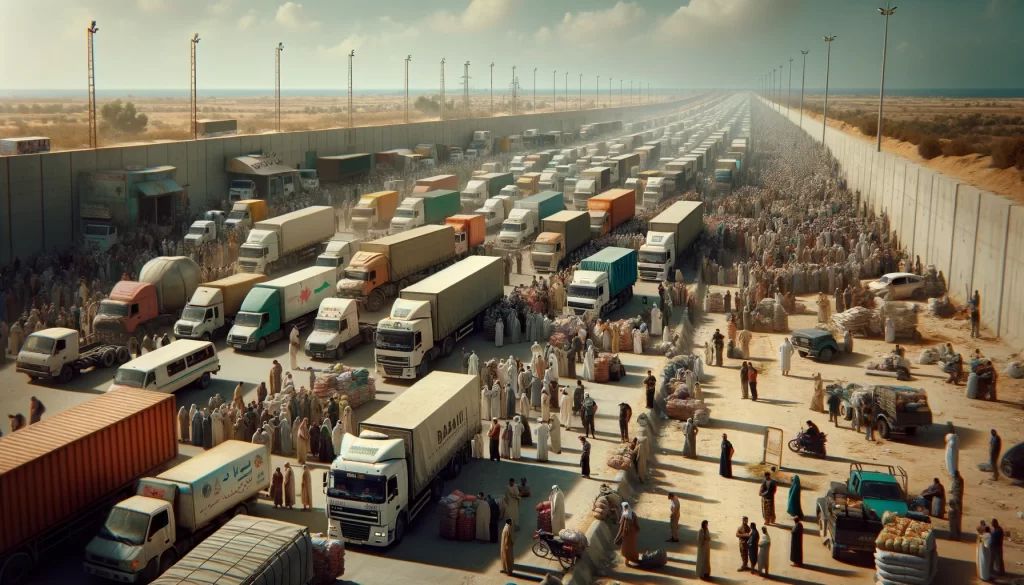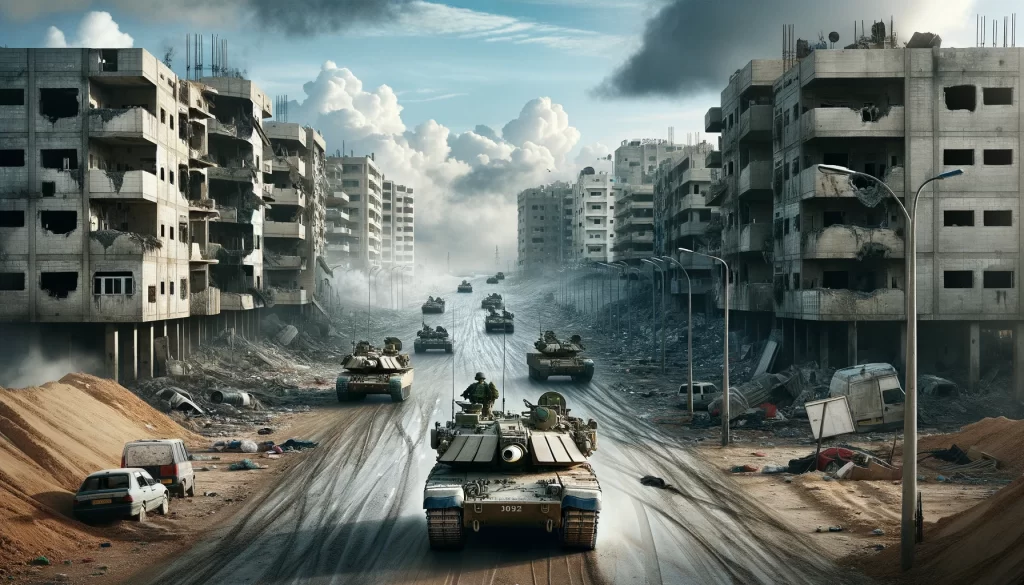Last week, President Biden decided to temporarily stop a shipment of arms to Israel, a move reflecting the United States’ concern over potential Israeli military operations in Rafah, a city in the southern Gaza Strip. This decision halted the delivery of 3,500 bombs to Israel, which are typically used in military strikes. Administration officials indicated that this was to prevent the weapons from being used in an expected attack on Rafah, where over a million residents of Gaza have sought refuge amid ongoing conflict.
The pause in arms shipments marks the first such action by President Biden since the conflict escalated following the attack on October 7th by Hamas. Previously, Biden had consistently supported Israel’s military actions against Hamas but changed his stance due to the potential for significant civilian casualties if Rafah were targeted.
The tension between the U.S. and Israel surfaced publicly when Israeli officials first revealed the pause in a report to Axios, while U.S. officials initially did not confirm these reports. The eventual confirmation by the U.S. came after Israel had already begun a limited military operation in Rafah, sending tanks into the city and taking control of a key border crossing. This operation was described by Israel as a response to recent rocket attacks by Hamas, which resulted in the deaths of four Israeli soldiers.
In addition to military actions, Israel has also evacuated 110,000 civilians from Rafah, suggesting a preparation for more extensive military engagement. While these actions suggest a buildup to a larger operation, they are officially described as part of efforts to pressure Hamas into negotiating a cease-fire in Cairo.

Despite his strong stance supporting Israel, President Biden has voiced his commitment to ensuring the safety of civilians and has advocated for minimizing casualties in the conflict. His withholding of the arms shipment aligns with growing calls from his political allies who have urged a reconsideration of U.S. military support to Israel under the current circumstances. However, in a speech at a Holocaust remembrance ceremony, President Biden reiterated his unwavering support for Israel, emphasizing the security and the right of Israel to exist as an independent state, even when disagreements over military strategies arise.
The Biden administration has not stopped all military aid to Israel, but it has paused the delivery of certain heavy bombs. Recently, the U.S. approved a significant aid package for Israel, totaling $827 million in weapons and equipment. This package will be fully delivered as allocated by Congress.
However, U.S. officials are particularly concerned about the potential damage from 2,000-pound bombs in the densely populated area of Rafah, where many civilians displaced by conflict are currently located. Decisions about sending additional munitions, specifically guidance kits for precision strikes, are still pending.
Tensions have been escalating due to Israel’s actions at the Rafah border crossing with Egypt, which have disrupted humanitarian aid efforts. These actions include seizing control of the crossing and closing another major entry point, Kerem Shalom, which are vital for the delivery of food, medicine, and other supplies to Gaza. The White House has expressed strong disapproval of these closures, emphasizing the exacerbation of the humanitarian crisis in Gaza.

The relationship between President Biden and Prime Minister Netanyahu has become increasingly strained. In a recent conversation, President Biden suggested reevaluating U.S. support if Israel did not alter its approach to the conflict. Although he did not explicitly threaten to cut off arms supplies, the implication was clear.
While Israel has made some efforts to improve the flow of humanitarian aid, disagreements remain, particularly concerning the planned military operation in Rafah. U.S. officials have warned Israel against replicating the tactics used in northern Gaza, which resulted in significant casualties and widespread destruction.
Israel relies heavily on the U.S. for military support, particularly in air defense, which has been crucial for its security. The U.S. has indicated that it will continue to supply defensive weaponry.
Amid these developments, Secretary of State Antony J. Blinken is preparing to report to Congress on whether Israel’s use of American weapons complies with U.S. and international laws. This report is highly anticipated and could potentially influence future U.S. military aid to Israel, depending on its findings. The outcome could spark intense debate and further protests, especially among university students and congressional Democrats.
This article is based on the following article:

Background Information
By understanding these key points, readers can better grasp the complexities of the situation described in the article, including the strategic decisions made by leaders and the impacts on people living in conflict zones.
- Israel and Gaza:
- Israel is a country in the Middle East, established in 1948, known for its historical and religious significance to several major religions.
- Gaza is a small region on the eastern coast of the Mediterranean Sea, bordered by Israel and Egypt. It is one of the territories occupied by Palestinians, who seek independence for their state.
- The region has a long history of conflict, primarily between Israel and Palestinian groups, due to territorial disputes and political tensions.
- Hamas:
- Hamas is a Palestinian militant group that governs Gaza. It was founded in 1987 and is considered a terrorist organization by Israel, the United States, and several other countries.
- The group has been in conflict with Israel for many years, including firing rockets into Israeli territory and engaging in various forms of resistance against Israeli control.
- U.S.-Israel Relations:
- The United States and Israel have a strong alliance, characterized by military aid, economic cooperation, and shared strategic interests in the Middle East.
- The U.S. provides significant military support to Israel, which includes weapons and funding, making it a crucial aspect of their relationship.
- Humanitarian Concerns and International Law:
- In conflict zones, international law, including the laws of war, dictates the protection of civilians and non-combatants. This includes regulations against disproportionate force and ensuring that humanitarian aid can reach those in need.
- Concerns often arise regarding the humanitarian impact of military operations, especially in densely populated areas like Gaza, where there is a high risk of civilian casualties.
- Role of Humanitarian Aid:
- In conflicts, humanitarian aid is essential for providing necessary supplies like food, medicine, and shelter to affected populations.
- Border crossings, like those at Rafah and Kerem Shalom, are critical points for the delivery of this aid. Control and access to these crossings can significantly impact the well-being of civilians.
- Political Implications and International Reactions:
- Decisions about military aid and operations can have wide-reaching political implications, influencing international relations and domestic politics in the countries involved.
- The international community, including other countries and organizations, often monitors these situations closely and may respond with diplomatic actions, sanctions, or calls for peace.

Debate/Essay Questions
- Should the U.S. continue its military aid to Israel despite concerns about civilian casualties in Gaza?
- Is the use of heavy bombs in densely populated areas ever justifiable in modern warfare?
Please subscribe to Insight Fortnight, our biweekly newsletter!
